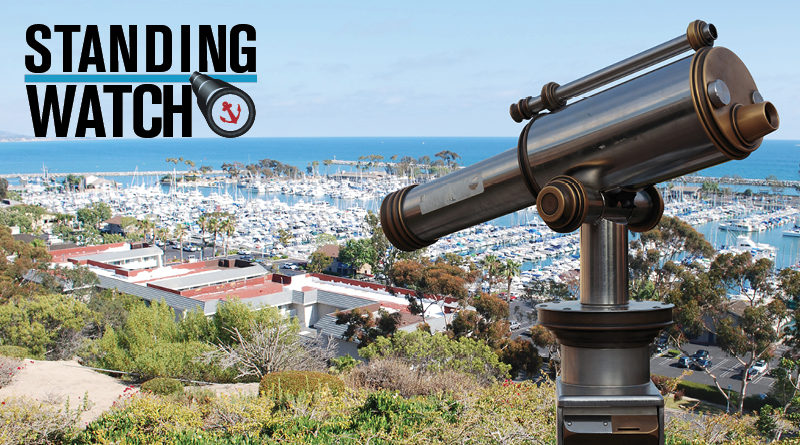Prioritizing Recreation: Advocacy Group Seeks Inclusion of Boating in Policymaking
National Marine Manufacturers Association campaigns federal legislators to be more receptive of boaters in developing infrastructure policies.
NATIONWIDE—Recreational boating plays a major role in the national economy and should not be overlooked by legislators as they craft outdoor policy. This was the message of a letter sent to the leadership of the House’s Committee on Transportation and Infrastructure on March 25. The letter, which was penned by Nicole Vasilaros, the senior vice president of government relations and legal affairs for the National Marine Manufacturers Association (NMMA), requested a specific “Recreation Title” be included in any infrastructure package addressing recreational outdoor needs.
Vasilaros’s letter included several policy recommendations for committee members to consider when addressing or deliberating recreational outdoor policy proposals. Dredging, aquatic invasive species, waterway maintenance, gas tax and broadband access on federally managed lands and waters were among the priorities Vasilaros hoped House of Representatives and U.S. Senate members would specifically include in future recreational outdoor policy matters.
“I encourage you to consider the role recreation-based infrastructure plays in supporting the U.S. economy and prioritize these needs as the committee continues its work in developing a robust infrastructure package,” Vasilaros said in her letter to Reps. Peter DeFazio and Sam Graves.
“While roads, bridges and commercial airports are key infrastructure touchpoints, infrastructure that improves the use and enjoyment of our environment – both on land and by water – and encourages outdoor recreation, should be also considered,” the letter continued.
The March 25 letter went on to boast the contributions of recreational boating on the U.S. economy.
“Recreational boating is a significant contributor to the U.S. economy, generating $170.3 billion in annual economic impact that supports more than 35,000 businesses and 690,000 jobs. Additionally, the outdoor recreation economy as a whole – which is driven by boating and fishing and includes RVing, guided tours, and motorcycling and ATVing – accounts for 2.2% of U.S. [gross domestic product], $734 billion in gross economic output and 4.5 million jobs.
“In terms of [gross domestic product], outdoor recreation is larger than mining, utilities, and chemical products manufacturing,” Vasilaros continued in her letter. “For our industry – and the entire U.S. economy – to continue to grow, it is essential that recreation infrastructure be addressed in a comprehensive infrastructure proposal.”
One of those key infrastructure initiatives Vasilaros referred to was federal dredging. Vasilaros specifically stated Congress must “address critical dredging needs,” as it effects recreation boating, and study recycling alternatives for dredged materials.
“[The Army Corps of Engineers] prioritizes dredging funding by total tonnage, failing to properly account for lower tonnage harbor needs and the value in creating access for recreational activities,” Vasilaros said. “Under this flawed system, federal navigation maintenance, dredging and dredged material management projects are conducted almost entirely in the nation’s largest port districts, thereby ignoring the needs at smaller ports used by recreational boaters and anglers.”
She added bays and harbors become filled with debris, mud, silt and other materials over time, eventually reducing waterway depth and creating environmental and safety standards.
“Proper dredging of these sediment materials plays a critical role in providing access to the recreational boating and fishing communities and maintaining clean and healthy waterways for local ecosystems,” Vasilaros said.
Other recommendations posted in the Vasilaros letter called for Congress to consider:
- A review of the Army Corps’ recreational infrastructure assets to determine new investment areas
- Ensuring recreational projects, amidst a backlog of nearly $2.28 billion in repairs, are properly funded
- Boosting the gas tax to provide additional revenues for conservation funding
- Assessing the status of aquatic invasive species, nationwide
- Investing in pump-out and decontamination stations
- Improving broadband access at federally managed lands and waters, and
- Enhancing the overall recreation economy.
“The benefits of expanding and improving the outdoor recreation economy are clear and compelling,” Vasilaros would later write. “A recent study confirmed that for every dollar Congress invests in the National Park Service, $10 is returned to the U.S. economy.”


